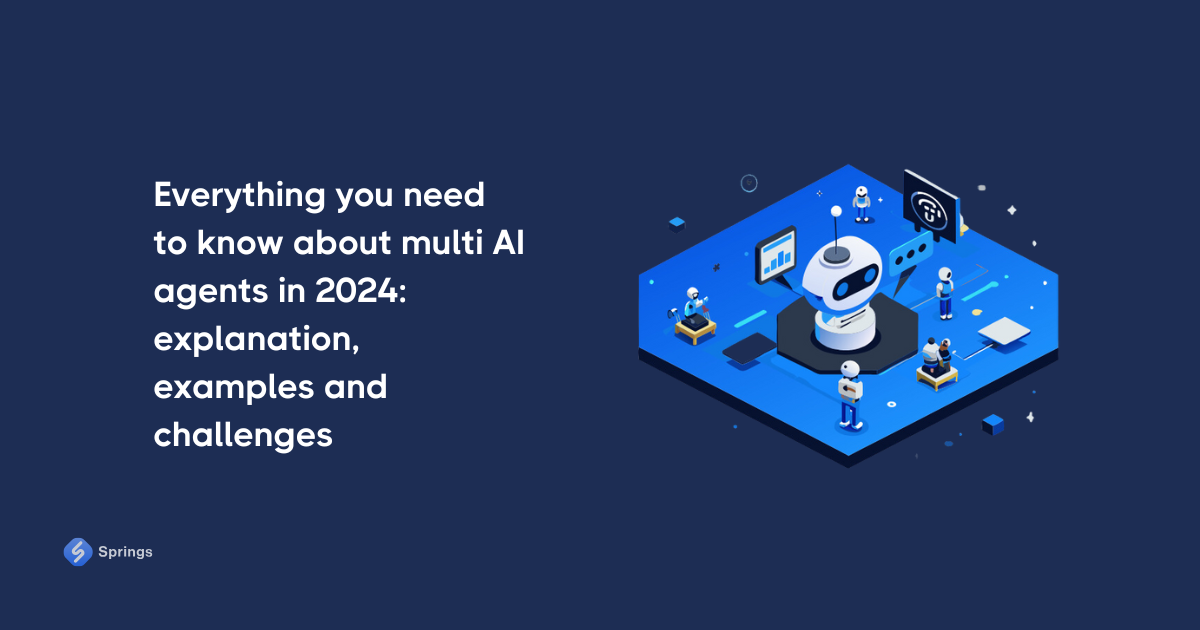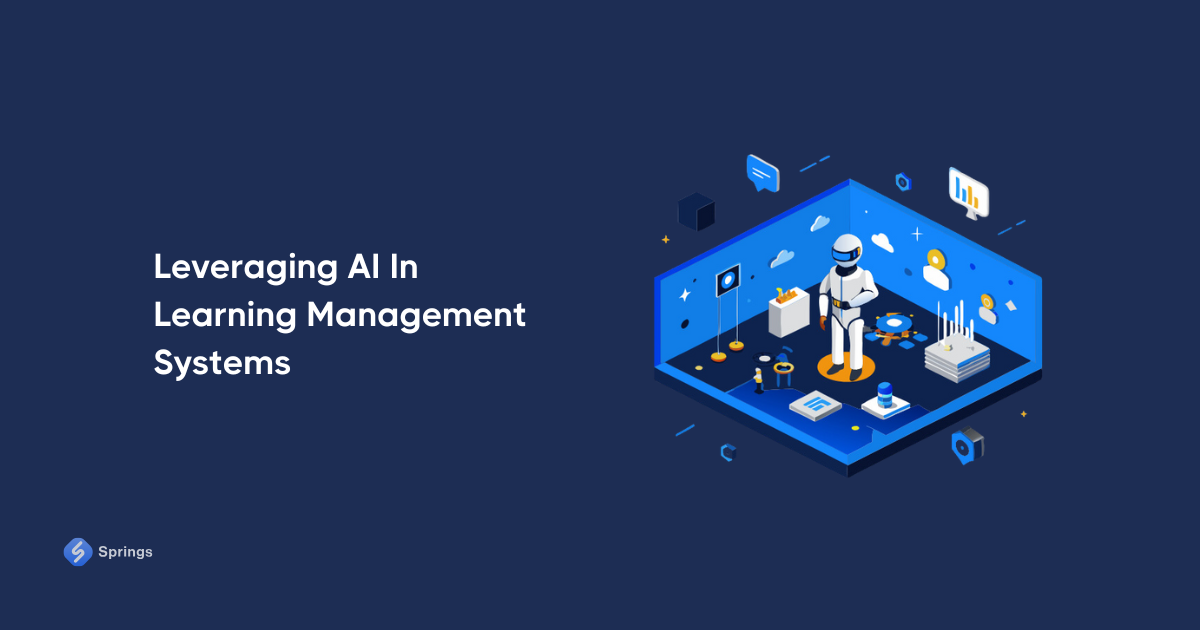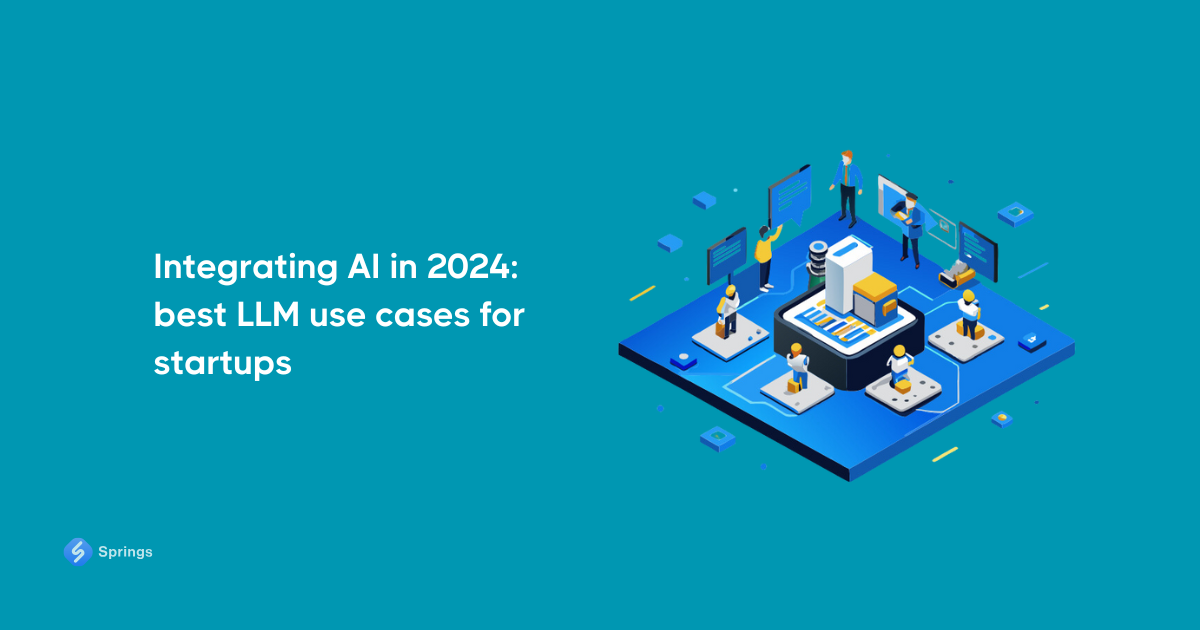According to the latest Statista report, the sector of e-commerce will reach $3,647 billion by the end of 2024. In 2028, this figure is expected to grow to $5,307 billion, with the global volume of users reaching 4,5 billion and the average revenue per user increasing to $1,079. The wide adoption of machine-learning-based solutions will be a major contributor to this field.
In recent years, they’ve become a key factor in the success of many small, medium, and large-size enterprises. These products help e-commerce businesses drive sales and automate various processes. Our article details the latest information, use cases, and benefits machine learning applications bring to e-commerce companies.
Table Of Contents:
- E-Сommerce Machine Learning: Your Ultimate Guide 2024
- Key Machine Learning E-Commerce Techniques
- How Is Machine Learning Used In E-Commerce?
- Ecommerce Machine Learning: Business Advantages
- Top Examples of Companies Using ML In E-Commerce
- Machine Learning In E-Commerce: Latest Facts and Statistics
- Conclusion
Key Machine Learning E-Commerce Techniques
Machine learning has become popular among e-commerce businesses thanks to its versatility. Solutions based on this technology automate various processes, from customer support to inventory management. In general terms, ML helps software products work with information and make decisions based on it.
One of the biggest advantages of e-commerce ML solutions is that they learn from each interaction. For example, ML-based assistants help customers with choosing smartphone models or solving issues with their gadgets. The more times this happens, the better these assistants become at addressing the customer’s needs.
In e-commerce, there are three types of techniques programmers use to deliver different types of products that use machine learning:
Deep learning
This class of algorithms allows extracting vital data from vast amounts of information. Products built for this industry usually come equipped with image and voice recognition. They are mostly used for:
Product image classification
Voice recognition
Quality control
Visual search
Neural networks
Large language models and neural networks are what allow solutions to understand and work with language tasks. This technique is optimal for:
Item categorization
Pattern recognition
Sentiment analysis
Reinforcement learning
This technique is used when supervised and unsupervised learning aren’t efficient enough. The best applications for this techniques are:
Dynamic pricing
Personalized user experience
Supply chain optimization
Top E-Commerce Machine Learning Use Cases
Chatbots and assistants
Among modern e-commerce enterprises, virtual assistants and chatbots remain one of the most sought-after pieces of ML products. They comprehend the context of conversations and talk to customers in a natural tone thanks to a technology called natural language processing.
Clients use ML-based chatbots and assistants for all types of requests. They help e-commerce businesses provide shipment options, order statuses, product alternatives, and discount information, improving cross and upselling opportunities.
Contextual shopping
With machine learning, e-commerce businesses become better at nudging customers towards particular products and offering a more interactive experience. Contextual shipping products use computer vision and ML technologies to find and highlight brands and products in online videos. Online shops use such solutions to add links to particular product pages. This way, their clients purchase items while browsing multimedia content.
Delivery optimization
Modern e-commerce ML products help enterprises find the best navigation paths to deliver products more efficiently. Products with ML capabilities analyze data from previous cases and provide the best conditions and methods for new deliveries based on customer expectations.
These products speed up the shipping process via ML-based route planning. Applications assess real-time weather conditions, traffic data, driver’s performance, and experience. This information is used to make the fastest and safest delivery routes.
Fraud detection
Many e-commerce companies turn to machine learning solutions to deal with various types of dangerous activities. It’s not uncommon for hackers to steal client identities or to charge for items using someone else's payment information. Modern machine-learning products spot patterns that are irregular to the actions of particular customers.
For example, when a client makes too many purchases or excessively shops for items they didn’t show interest in, this may be a sign of suspicious actions. Machine learning algorithms allow security experts to take action quickly and warn clients of dangers to their financial security and well-being
Pricing optimization
One of the most common e-commerce machine learning use cases involves the optimization of pricing strategies, promotions, and personalized discounts. This approach allows e-commerce enterprises to adjust their prices periodically and keep up with the competition. ML-based products help companies by analyzing user data, the pricing history of similar products, competitor offers, and supply and demand levels.
Recommendation engines
E-commerce enterprises heavily use recommendation systems to drive upsells. Some of these solutions use content-based filtering to see customers' purchase history and recommend similar products. Others utilize combined filtering to show products that have already been ordered and received rave reviews from clients with similar buying patterns.
Smart search engines
Modern enterprises use the versatility of ML to make their search engines better comprehend client requests. Smart engines used by corporations like Amazon consider a wider variety of synonyms associated with provided keywords.
These types of engines are programmed to adjust search results based on different clients' tastes and purchase habits. This approach builds up the personal buying journey for clients and makes them more likely to purchase.
Targeted advertisements
Another case of using machine learning in e-commerce deals with customized advertisements. Enterprises provide targeted ads to clients according to their social media activities, buying history, Google search history, and other data types. ML products also look into demographics, location, and activities on e-commerce websites.
This information lets companies offer individual email, social media, chatbot, website, and other types of ads relevant to particular users. The combination of ML solutions and AI-based content reduces efforts on effective advertisement.
Trend analysis
Apps made using machine learning tech help e-commerce companies predict sales trends and decide how to handle their stocks effectively. Some of the variables ML solutions consider include seasonal purchase patterns, economic conditions, product ratings, and reviews.
In addition to scanning the website for this data, ML products search for it on social media and POS solutions. With this approach, companies earn more by providing clients with enough products to purchase, reducing food spoilage, and adequately using their storage.
E-Commerce Machine Learning: Business Advantages
Better decision-making
E-commerce businesses that use the power of AI get insights into customer behavior, company processes, and market trends. This information lets them make more effective strategic decisions.
Bolstered financial security
Modern ML-based solutions capable of fraud detection result in saved funds for customers and enterprises alike. Identifying potentially dangerous activities helps businesses save costs on returns and shows a concern for the financial security of their clients.
Competitive advantage
Using machine learning solutions for e-commerce gives enterprises an edge over the competition. Such companies predict trends, analyze data, and automate processes much faster, making adjusting to market conditions easier.
Churn reduction
Companies use machine learning in e-commerce to identify clients who are about to stop doing business with them. Thanks to deep data analysis capabilities, solutions suggest the best ways to intervene and entice clients with propositions they will find most suitable.
Deeper customer insights
Machine learning products' versatility allows companies to better understand clients' attitudes towards them and their business. By tapping into the data gathered through sentiment analysis, enterprises have a better chance of improving the efficiency of services and products.
Efficient inventory management
With ML, e-commerce companies easily anticipate demand for different product categories and manage inventory. This reduces expenses associated with stockouts and overstocking.
Greater marketing results
Machine learning e-commerce solutions raise the effectiveness of marketing campaigns by establishing the most promising customer and engagement segments, getting better ROI from campaigns.
Higher sales and conversion rates
Through targeted marketing and personalized offerings, e-commerce companies often see higher conversion rates and sales. ML-based solutions make finding the right product for the right customer easier, becoming a critical revenue factor.
Improved customer experience
A combination of targeted recommendations, content, and offers leads to more personalized shopping and makes the customer journey unique for everyone. This leads to better client satisfaction and loyalty.
Reduced customer service costs
Chatbots and virtual assistants developed with ML technology decrease expenses related to hiring and maintaining customer service teams, lowering overall operational costs.
Top Examples of Companies Using ML In E-Commerce
These things look promising, but what about the real application of machine learning products in e-commerce? Currently, several businesses and brands have successfully reaped the benefits this technology has to offer.
Amazon
Jeff Bezos’s corporation is one of the frontrunners in implementing AI solutions among e-commerce companies. It uses dynamic pricing and personalized search to boost sales and customer satisfaction. Amazon was among the first companies to offer the voice search option.
Through a combination of natural language processing and machine learning, it understands audio cues and the context of requests, increasing the chances of presenting the most relevant products. The search engine also uses deep learning to find similar products and provide additional options.
Casper
The company specializing in beds, mattresses, and all things rest-related didn’t want people who couldn’t get any to feel lonely during the long sleepless nights. Thus, Casper made its AI-powered Insomnobot3000 to help insomniacs and those who struggle to fall asleep.
The solution provides an organic way for the company to market its services and emotionally connect with its client base. Insomnobot3000 uses NLP and ML technologies to respond to people in real-time, tell them bedtime stories, and help with meditation and other relaxing activities.
Dollar Shave Club
This provider of razors, soaps, shaving products, and other types of men's care products uses AI and ML for several things. These technologies help Dollar Shave Club with customer service, process optimization, marketing, and product recommendations.
The company also uses the capabilities of e-commerce ML, big data analytics, and artificial intelligence for predictive inventory management. The combination of these technologies allows the DSC to establish customer behavior and market changes.
H&M
Machine learning algorithms and computer vision technology help the H&M brand maintain the quality of its products. Cameras equipped with CV scan products before shipment to ensure that they meet the company's quality standards.
At the same time, machine learning algorithms check the items for any defects, such as tears, stains, or poor stitching. Next, they determine how severe these defects are based on pre-trained parameters. Seriously damaged items are sent back for repairs by H&M experts.
eBay
Amazon's biggest rival made its recommendations engine that uses deep learning networks to let over 150 million users find the right items out of 1.5 billion live listings. The system gathers textual information from item and user descriptions to find the best matches based on the client’s browsing activity and purchase history.
Netflix
The global streaming service has some of the most results among e-commerce machine learning use cases thanks to its recommendation engine. The algorithms analyze the viewing history, ratings, and view time statistics to offer shows and movies that people may find interesting.
In addition to personal recommendations, machine learning allows Netflix to optimize the content quality based on a user’s internet connection speed. This reduces buffering time and provides the best image quality.
Nike
One of the world's largest clothing brands offers an AI-powered app for personalized workout plans. Using machine learning algorithms, it develops routines based on an individual’s fitness level, age, gender, and other factors. The application analyzes data gathered through sensors built into the advanced models of Nike shoes.
The Nike Run Club application also calculates how much weight its users should lift or how hard they should run. This is done by analyzing the time it takes for people to hold each position or how fast they move. Information about a person’s physical traits makes workouts less straining and less likely to cause injuries.
Stitch Fix
This clothing store uses artificial intelligence and machine learning algorithms to provide wardrobe combinations for every week of the month. Stitch Fix experts combine AI and real designers to offer the best product recommendations. Unlike some of the brands that use virtual fitting rooms, the company just sends boxes of items their buyers can be interested in.
Here’s how it works. First, data scientists and product managers analyze customers' preferences and buying history. Second, they send this information to stylists who use ML algorithms to help them determine the best recommendations for different individuals. Machine learning also determines which clients will most likely order new boxes or not.
Walmart
Walmart is one of the biggest e-commerce enterprises in the US that uses machine learning to enhance supply chain and inventory management operations. The company’s data scientists work with ML algorithms that identify data patterns for inventory levels and product demand.
The giant predicts the type of items that will be popular based on past sales data. This way, Walmart maintains shipping schedules and optimizes inventory levels. Additionally, the company utilizes ML solutions to adjust routes between its warehouses and buyers' homes.
Whole Foods
The American supermarket chain relies on AI-powered chatbots that answer customer questions about its goods and services in a natural and human-like manner. Whole Foods’s tool also provides new product suggestions based on client location, history of purchases, and preferences.
The chatbot handles simultaneous conversations with multiple users in real time. This approach allows Whole Foods to provide excellent customer service, maintain client satisfaction, and save funds on a large staff of support experts.
Machine Learning In E-Commerce: Latest Facts and Statistics
Products built on this technology have significantly impacted the field of e-commerce in the past couple of years. Several statistics show the future of this technology in this field:
The use of ML in e-commerce results in 25% higher customer satisfaction and revenue for businesses in this area.
Solutions based on this technology lead to 94% higher numbers of qualified visitors.
ML-based product recommendation systems result in 5-15% higher revenues.
Up to 80% of all customer interactions are handled by AI products.
The number of companies using AI and ML solutions increased by 270% in the past four years.
AI chatbots and assistants help US chatbots save up to 30% on customer service expenses with potential savings of $23 billion.
75% of all watched content on Netflix is recommended by ML algorithms.
Amazon’s recommendation engine drives 35% of annual sales.
AI-based business strategies allow companies to increase sales by 20%.
It’s expected that by 2025, the investments in AI among e-commerce companies will increase by 800%.
Alibaba has reduced delivery errors by 40%, saving millions on return logistics.
Luxury Escapes increased response rates by 89% through ML-based chatbots.
Netflix saved $1 billion in lost revenue through personalized show recommendations.
Conclusion
Machine learning in e-commerce will continue to grow in 2024 and beyond. Start your research today if you wish to get on this train and reap the benefits of using this technology. We’re ready to help with any ML products you want to see in your business. If you find our article interesting, share it with people who may find it insightful.





